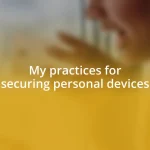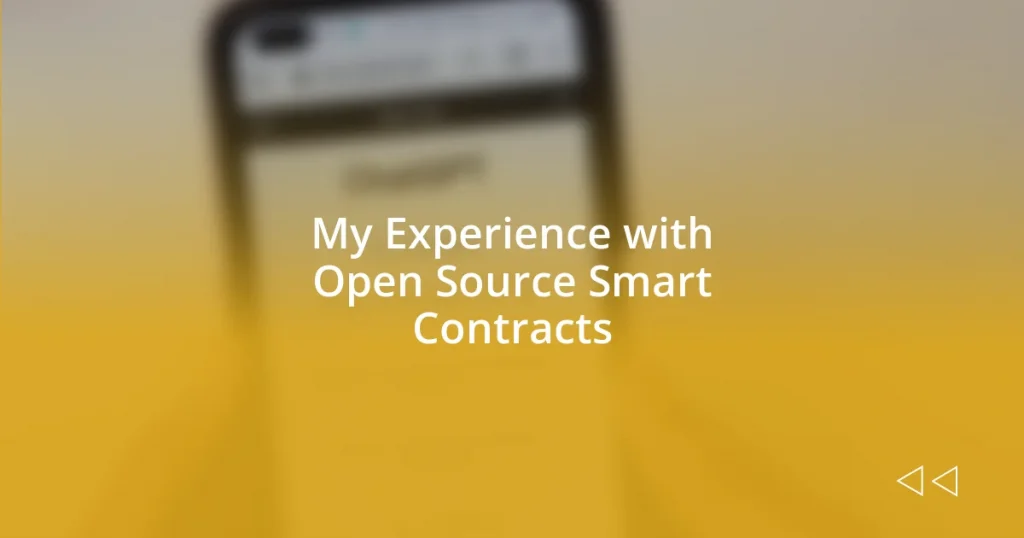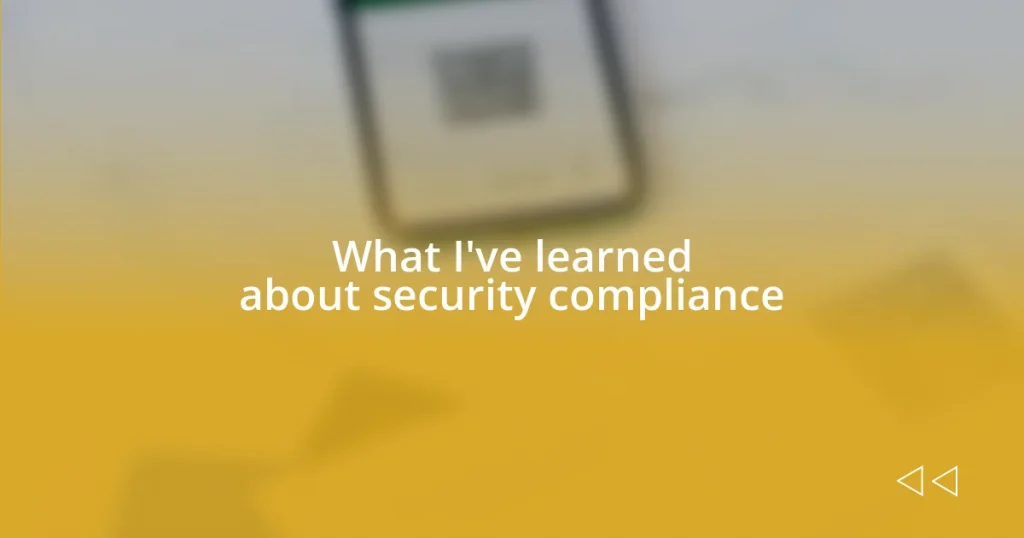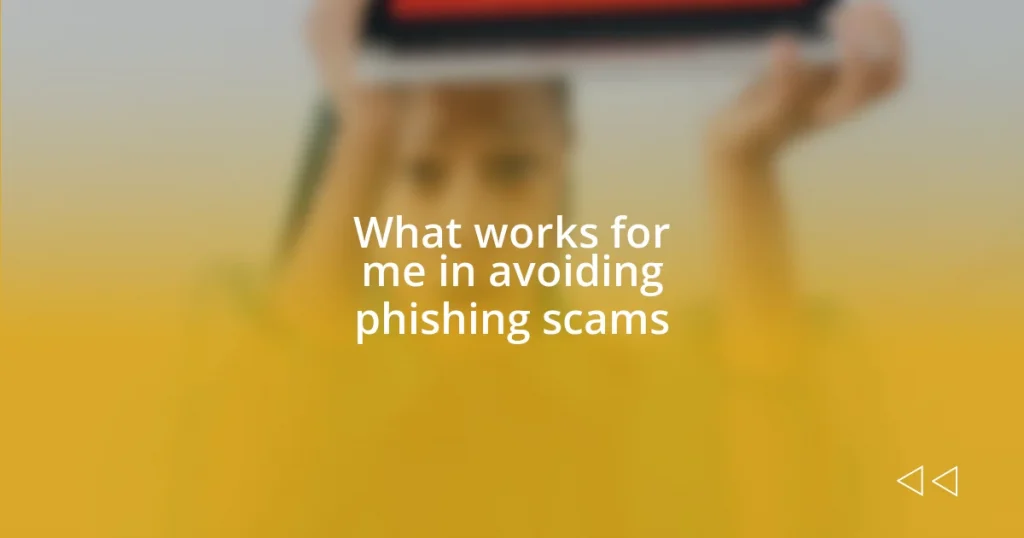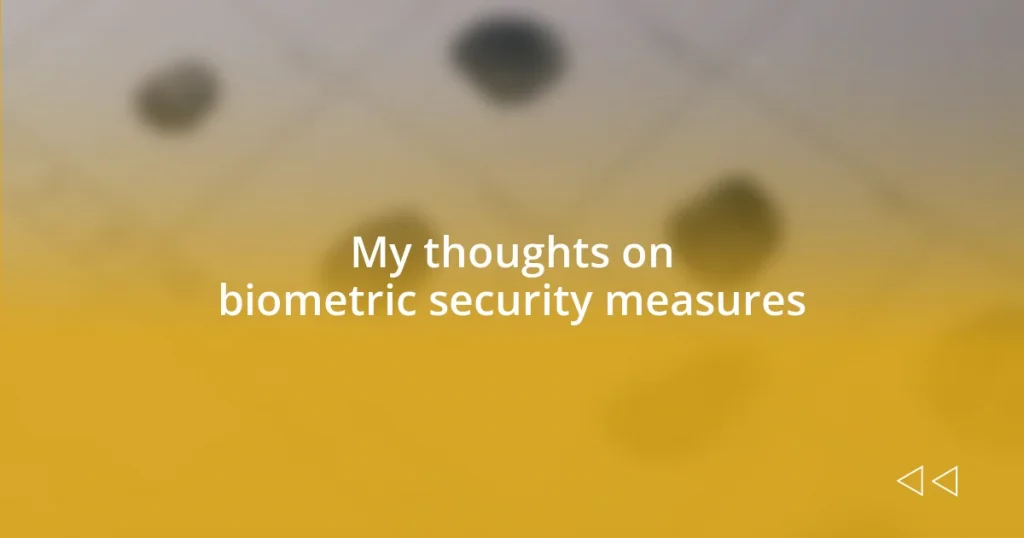Key takeaways:
- Smart contracts are self-executing agreements coded to eliminate middlemen, ensuring seamless transactions.
- Immutability ensures trust and transparency in smart contracts, emphasizing the importance of audits and testing for security.
- Best practices for implementing smart contracts include thorough testing, community engagement, and comprehensive documentation to enhance project success.
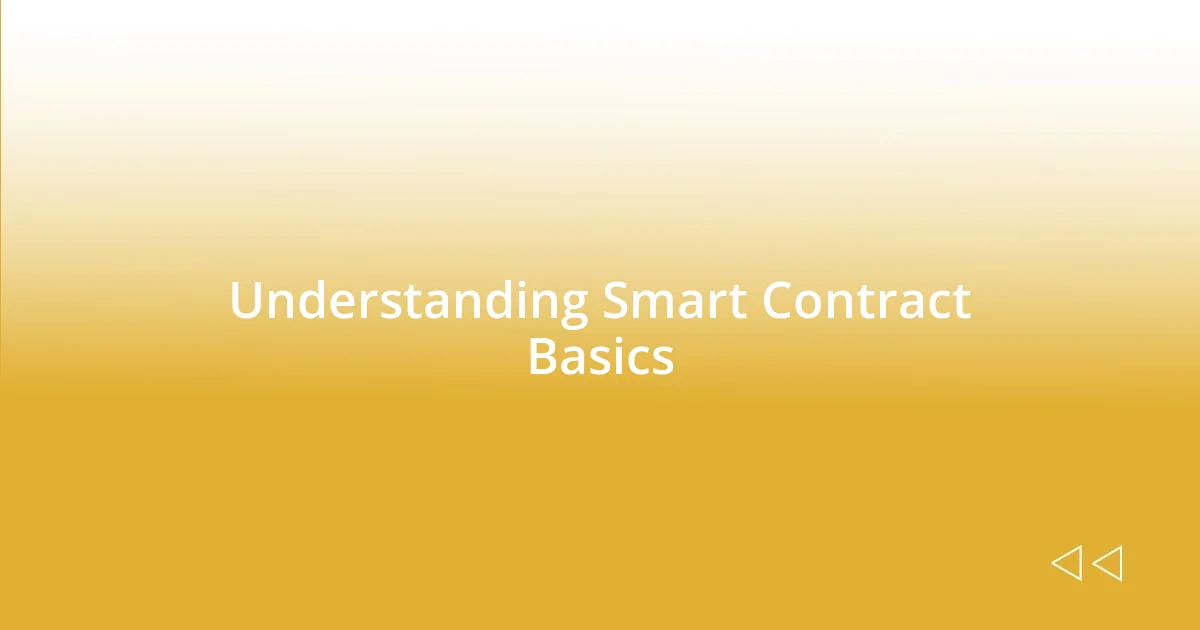
Understanding Smart Contract Basics
Smart contracts are essentially self-executing contracts with the terms of the agreement directly written into code. It’s fascinating how I first learned about them during a workshop on decentralized technology; I couldn’t help but think about how they eliminate the need for middlemen, which is a game-changer in many industries. Have you ever marveled at the implications of such automation?
When I started experimenting with smart contracts, I was struck by the robustness they offer. Imagine a digital vending machine: you insert the right amount of cryptocurrency, and it automatically dispenses your product without any human intervention. It really made me appreciate how these contracts can cut through bureaucratic red tape, allowing for seamless transactions.
One crucial aspect of smart contracts is their immutability. Once deployed, they cannot be altered, ensuring transparency and trust. I remember my initial hesitation—what if a bug crept in? But once I grasped how audits and testing play a role, I found a sense of security that was truly empowering. Isn’t it inspiring how this technology opens the door to trust in a world often filled with skepticism?
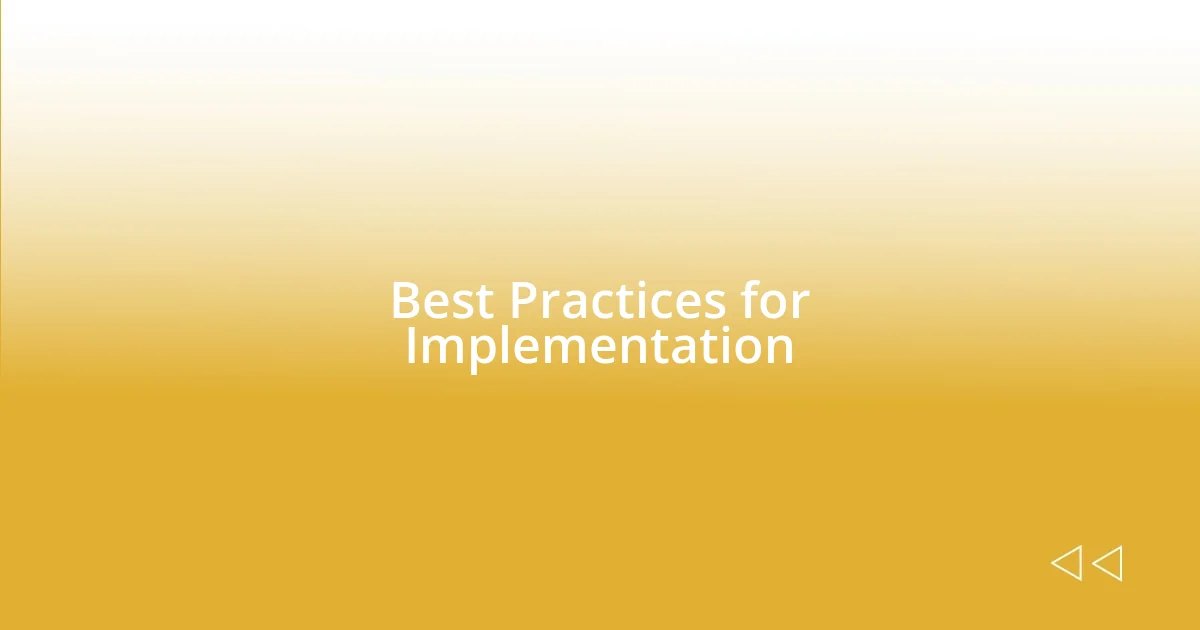
Best Practices for Implementation
When implementing open-source smart contracts, one of the best practices is to conduct thorough testing before deployment. I vividly recall my own anxiety when I rolled out my first contract, fearing the repercussions of a mistake. To alleviate that, I embraced a rigorous testing phase, simulating various scenarios and edge cases. Do you know what that did for my confidence? It really underscored the importance of anticipating potential failures before they could occur.
Another key practice I’ve learned is to engage with the community. In the early days, as I grappled with developing smart contracts, I found immense value in forums and collaborative platforms. One memorable evening, I reached out for help on a particularly stubborn issue; the responses flooded in, and I felt a sense of camaraderie that motivated me to push through. That’s the beauty of open-source: sharing knowledge not only enriches your project but also builds invaluable connections.
Documentation is often overlooked but is critical for successful implementation. I learned this the hard way when I returned to a project after a few months and struggled to recall my rationale for specific decisions. Having comprehensive documentation not only helps others understand your work but also serves as a roadmap for your future self. Have you ever tried piecing together a jigsaw puzzle without the picture on the box? It can be frustrating! Clear documentation keeps everything in context, making the journey smoother for everyone involved.









